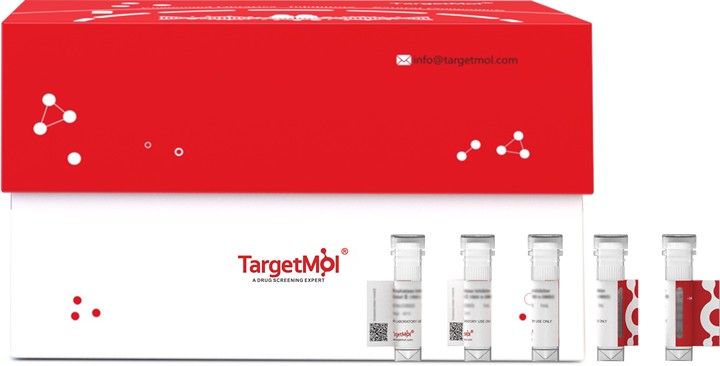- Remove All
 Your shopping cart is currently empty
Your shopping cart is currently empty
Arginase-2/ARG2 Protein, Mouse, Recombinant (His & SUMO)
May play a role in the regulation of extra-urea cycle arginine metabolism and also in down-regulation of nitric oxide synthesis. Extrahepatic arginase functions to regulate L-arginine bioavailability to nitric oxid synthase (NOS). Arginine metabolism is a critical regulator of innate and adaptive immune responses. Seems to be involved in negative regulation of the survival capacity of activated CD4(+) and CD8(+) T cells. May suppress inflammation-related signaling in asthmatic airway epithelium. May contribute to the immune evasion of H.pylori by restricting M1 macrophage activation and polyamine metabolism. May play a role in promoting prenatal immune suppression. Regulates RPS6KB1 signaling, which promotes endothelial cell senescence and inflammation and implicates NOS3/eNOS dysfunction. Can inhibit endothelial autophagy independently of its enzymatic activity implicating mTORC2 signaling. Involved in vascular smooth muscle cell senescence and apoptosis independently of its enzymatic activity.

Arginase-2/ARG2 Protein, Mouse, Recombinant (His & SUMO)
| Pack Size | Price | Availability | Quantity |
|---|---|---|---|
| 20 μg | $284 | 20 days | |
| 100 μg | $590 | 20 days | |
| 1 mg | $2,530 | 20 days |
Product Information
| Biological Activity | Activity has not been tested. It is theoretically active, but we cannot guarantee it. If you require protein activity, we recommend choosing the eukaryotic expression version first. |
| Description | May play a role in the regulation of extra-urea cycle arginine metabolism and also in down-regulation of nitric oxide synthesis. Extrahepatic arginase functions to regulate L-arginine bioavailability to nitric oxid synthase (NOS). Arginine metabolism is a critical regulator of innate and adaptive immune responses. Seems to be involved in negative regulation of the survival capacity of activated CD4(+) and CD8(+) T cells. May suppress inflammation-related signaling in asthmatic airway epithelium. May contribute to the immune evasion of H.pylori by restricting M1 macrophage activation and polyamine metabolism. May play a role in promoting prenatal immune suppression. Regulates RPS6KB1 signaling, which promotes endothelial cell senescence and inflammation and implicates NOS3/eNOS dysfunction. Can inhibit endothelial autophagy independently of its enzymatic activity implicating mTORC2 signaling. Involved in vascular smooth muscle cell senescence and apoptosis independently of its enzymatic activity. |
| Species | Mouse |
| Expression System | E. coli |
| Tag | N-6xHis-SUMO |
| Accession Number | O08691 |
| Amino Acid | VHSVAIVGAPFSRGQKKLGVEYGPAAIREAGLLKRLSRLGCHLKDFGDLSFTNVPQDDPYNNLVVYPRSVGLANQELAEVVSRAVSGGYSCVTMGGDHSLAIGTIIGHARHRPDLCVIWVDAHADINTPLTTVSGNIHGQPLSFLIKELQDKVPQLPGFSWIKPCLSPPNIVYIGLRDVEPPEHFILKNYDIQYFSMREIDRLGIQKVMEQTFDRLIGKRQRPIHLSFDIDAFDPKLAPATGTPVVGGLTYREGVYITEEIHNTGLLSALDLVEVNPHLATSEEEAKATARLAVDVIASSFGQTREGGHIVYDHLPTPSSPHESENEECVRI |
| Construction | 23-354 aa |
| Protein Purity | > 90% as determined by SDS-PAGE. |
| Molecular Weight | 52.4 kDa (predicted) |
| Endotoxin | < 1.0 EU/μg of the protein as determined by the LAL method. |
| Formulation | Tris-based buffer, 50% glycerol |
| Reconstitution | A Certificate of Analysis (CoA) containing reconstitution instructions is included with the products. Please refer to the CoA for detailed information. |
| Stability & Storage | Lyophilized powders can be stably stored for over 12 months, while liquid products can be stored for 6-12 months at -80°C. For reconstituted protein solutions, the solution can be stored at -20°C to -80°C for at least 3 months. Please avoid multiple freeze-thaw cycles and store products in aliquots. |
| Shipping | In general, Lyophilized powders are shipping with blue ice. Solutions are shipping with dry ice. |
| Research Background | May play a role in the regulation of extra-urea cycle arginine metabolism and also in down-regulation of nitric oxide synthesis. Extrahepatic arginase functions to regulate L-arginine bioavailability to nitric oxid synthase (NOS). Arginine metabolism is a critical regulator of innate and adaptive immune responses. Seems to be involved in negative regulation of the survival capacity of activated CD4(+) and CD8(+) T cells. May suppress inflammation-related signaling in asthmatic airway epithelium. May contribute to the immune evasion of H.pylori by restricting M1 macrophage activation and polyamine metabolism. May play a role in promoting prenatal immune suppression. Regulates RPS6KB1 signaling, which promotes endothelial cell senescence and inflammation and implicates NOS3/eNOS dysfunction. Can inhibit endothelial autophagy independently of its enzymatic activity implicating mTORC2 signaling. Involved in vascular smooth muscle cell senescence and apoptosis independently of its enzymatic activity. |
Dose Conversion
Calculator
Tech Support
Keywords

Copyright © 2015-2025 TargetMol Chemicals Inc. All Rights Reserved.


